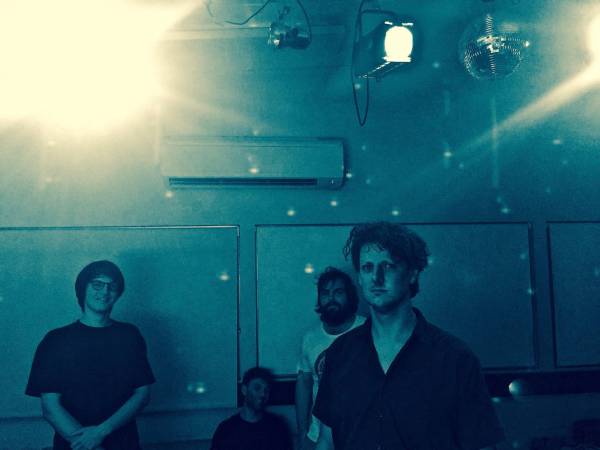Annandale Creative Arts Centre, December 20
7.5/10

Picture four painters working on the same canvas with no outlines sketched in. Imagine the mutual trust and sympathetic cohesion demanded. This four-way interaction across a 65-minute improvisation was like that, with Adrian Lim-Klumpes new quartet having inbuilt sonic individuality, consisting as it does of piano/keyboards (shared by the leader and Matt Harris), drums (Miles Thomas) and percussion/electronics (Nick Meredith).
Initially the musical agitation seemed trifling compared with the apocalyptic hail that nature had just hurled at us. Nonetheless it was dark and portentous; the music of conflict: between textures, rhythms, acoustic instruments and electronic, dynamic extremes and between freneticism and tranquillity.
Each person had a stoppage phase, and at one point Lim-Klumpes and Harris swapped instruments. Beyond that they let those conflicts play out, usually amid curlicues of gorgeous, enigmatic piano melody, regardless of who was playing it. Often these curlicues were beaten into the background by Meredith’s more ferocious contributions (which at one point resembled two cats fighting in the night), but they were there if you listened intently enough, and it was these that were fundamental to the music’s sense of mystery and layered density.
Thomas was a model of restraint, and when he unexpectedly established a groove in music that had mostly been devoid of a constant pulse, it was like a door opening on another sound world. This, in turn, gave way to Lim-Klumpes’ prepared piano: a guttural sound, akin to a harpsichord.
Sometimes to watch the players – especially Meredith – make this music was like seeing through a sleight-of-hand; seeing the prosaic physical processes that produced labyrinths of improbable sound. But with eyes closed it was the sonic equivalent of a Melvyn Peake novel: Gothic, unsettling, shadowy, sometimes overwrought, and sometimes gently, poetically beautiful.
Towards the end Thomas suddenly exploded into the foreground, swamping the other instruments with a deluge of drama, and when he retreated it was to leave an impenetrably dense wall of sound from the keyboards and electronics that only gradually subsided.